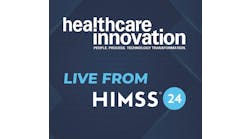A multidisciplinary team of researchers drawn from both healthcare and from defense/civil/intelligence consulting, has just authored a new article looking at the commonalities between the big data challenges facing members of the intelligence community and those facing clinical and administrative leaders in healthcare, and has drawn some striking comparisons, and accordingly offered advice.
Writing in the May 16 issue of The New England Journal of Medicine in an article entitled “Big Data and the Intelligence Community—Lessons for Health Care,” Kevin Vigilante, M.D., Steve Escaravage, and Mike McConnell draw out interesting parallels in the challenges facing the leaders in both industries, and conclude that healthcare leaders should indeed take some pages from the learnings that have taken place in the intelligence field.
“The recent explosion of health data — driven by increases in clinical, research, payer, and patient-generated data — promises to transform health care by improving care quality and population health and by constraining escalating costs,” the authors write. “But substantial obstacles remain. Many of these data are unstructured and the wide variety of taxonomies and formats makes data sharing and integration challenging. The health care industry’s legacy data-management technologies require time-consuming and labor-intensive data modeling and cleansing. Moreover, these tools must be designed with a specific set of questions in mind, and adding or transforming variables or incorporating unstructured objects such as images and audio files into data stores can be difficult.” Importantly, they note, healthcare continues to lag behind other industries in this area.
Further, the authors note that, while experts often urge healthcare leaders to learn from commercial enterprises like Amazon, Google, and Netflix, the reality is that the intelligence community has been grappling with some challenges that translate well into the healthcare space.
In that context, they urge healthcare leaders to do several key things. Their advice includes:
> Adopt less structured data-storage technologies, such as data lakes, to integrate disparate data with minimal data modeling.
> Incorporate automated metadata labeling to characterize properties of data.
> Use natural-language processing solutions to translate and structure text for analysis.
> Implement cell-level data security to enable criteria-based access to specific data objects.
> Create hypothesis-agnostic data-mining algorithms
> Establish a transagency data-management strategy.
“Like the health care industry,” the researchers note, “the intelligence community processes vast amounts of data, including structured information, unstructured text, and voice and imaging data, in various formats and taxonomies. Intelligence agencies must aggregate these data and rapidly perform advanced analytics to detect anomalies and patterns of concern. Just as health care organizations protect patient privacy under regulations laid out in the Health Insurance Portability and Accountability Act, the intelligence community goes to great lengths to protect information, sources, and methods, using complex and context-dependent security classifications. Like clinicians, intelligence analysts practicing a well-honed but sometimes intuitive craft use quantitative outputs to support high-stakes decisions. The intelligence and health care communities face analogous challenges surrounding the volume and variety of data they collect, the speed with which such data must be analyzed, and the level of confidence required in the outputs, which, in both settings, could have life-or-death consequences.”
And, they add, “We believe that federal health agencies should take the lead in adapting the data-science tools and techniques honed by the intelligence agencies. The Department of Veterans Affairs, the National Institutes of Health, and the Centers for Medicare and Medicaid Services generate and store an enormous volume and variety of data and could benefit from a unified data-management strategy analogous to the vision first articulated by the 9/11 Commission."

